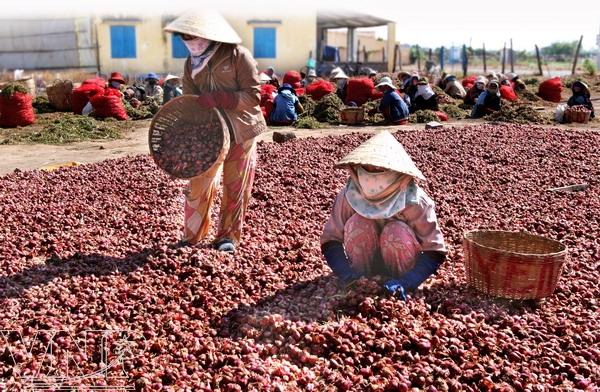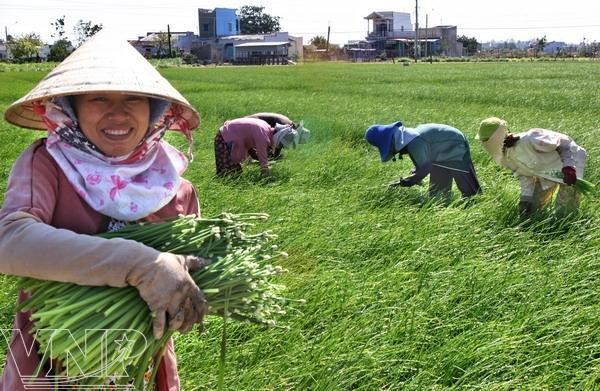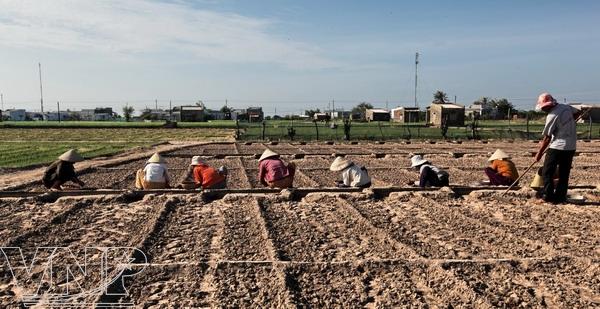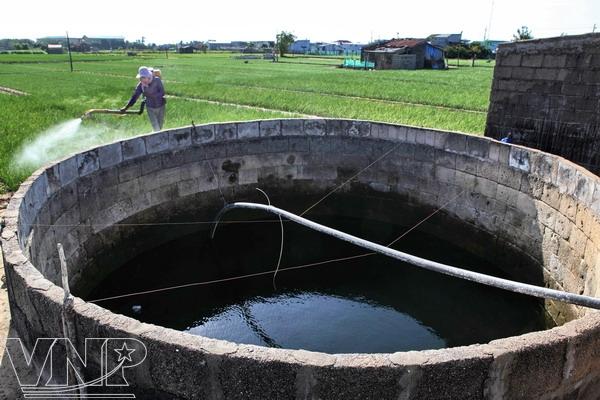|
Red onions - The specialty of Ninh Thuan
In dry weather all year round, the soil in Nhon Hai Commune, Ninh Hai District of Ninh Thuan Province is very suitable for growing various types of onions, particularly red onions, which brings income to the farmers.
If the weather does not change adversely, the farmers in Nhon Hai Commune grow four crops of red onions a year on a total area of 350-400ha and achieve an output of over 5,000 tonnes of onions. My Tuong red onion brand (from My Tuong 1 and My Tuong 2 Villages in Nhon Hai Commune) is known nationwide for their firm bulbs and good smell.
Due to its special aroma, Nhon Hai’s red onions have become an indispensable culinary addition. The factories producing instant noodles in Ho Chi Minh City and southern provinces have used it as a main ingredient for their noodles.
Nhon Hai Commune has become an important supplier of red onions for the surrounding provinces. The farming of red onions in this area has created jobs for many local people.
Nhon Hai is a coastal commune with only 1,025ha of agricultural land out of the commune’s total area of 3,750ha. Its soil is sandy so it is suitable for growing drought-resistant crops, such as tobacco, chilies, cotton and red onions.
The method of cultivating red onions is rather simple and less water-consuming. Red onions are the crop that Nhon Hai villagers opt for growing to increase economic development.
To ensure the quality of the red onion, Nhon Hai villagers commonly use two strains. One strain has 2-3 bulbs in a root. The bulbs are big, firm and glossy and have a dark red colour. The other strain has 4 bulbs or more in a root. These bulbs are smaller but the productivity is higher.
Every year, during harvest time the whole Nhon Hai Commune is bustling. All villagers, old and young are busy with their work. In the fields, onions are pulled up and tied in big bundles to be transported home.
At home, women and children classify the onions and tie them into small bundles of about 2kg each to sell to traders at a price of 7,000VND per kilogram. The output of red onions in Nhon Hai averages about 10 tonnes per hectare.
In Ninh Thuan Province which is considered “a huge oven”, the cultivation of drought-resistant crops, such as red onions can have difficulties, especially in the dry season. To have enough water for irrigating the onions, the farmers have dug hundreds of pools to exploit underground water sources.
They have also built small irrigation canals to bring water into the fields. Therefore in the dry season the onions still grow well and yield bumper crops.
The red onion is a multi-functional plant. Its bulb is used as a spice and its leaves are used as food for deer and sheep. If the weather changes adversely with prolonged drought and the area for growing grass are on the decrease, the use of red onion leaves to raise deer and sheep is a good solution.
Moreover, red onion leaves are useful to improve the reproductive capacity of deer and sheep and prevent some intestinal diseases. Red onions have helped to develop husbandry in Nhon Hai Commune and bring more income to the farmers.
Red onions can prevent bacteria. They can also prevent and cure: inflammation, swells and pains caused by arthritis, rheumatism, asthma and respiratory hyperemia. It is effective in preventing diabetes and colon cancer and strengthening the bones.
“Each year, apart from having a stable income from husbandry, my family grows two crops of red onions on a plot of 720m2 and earns approximately 14 million VND.
Families of professional onion growers earn a much higher income. Thanks to red onions, many families in Nhon Hai not only have a stable life but also become rich and ensure their children’s education.” (Nguyen Thi Tam, a red onion grower in Nhon Hai).
VNP
|
Thứ Ba, 4 tháng 2, 2014
Đăng ký:
Đăng Nhận xét (Atom)




Không có nhận xét nào:
Đăng nhận xét